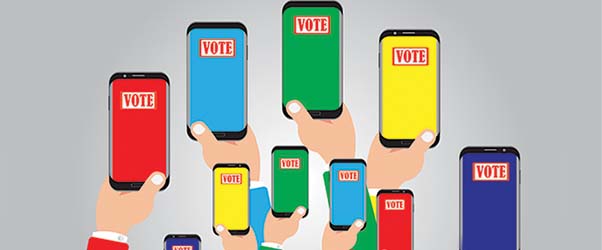Is voting by mobile app a better security option or just ‘a bad idea’?
Paper ballots and risk-limiting audits — the manual sampling of votes — have become the new best practices for protecting US elections in the aftermath of Russia’s election meddling and hacking of voter registration databases during the 2016 presidential campaign.
Adding a paper trail to electronic voting to ensure ballots get accurately counted in the digital age may seem, well, a bit counterintuitive. But while some election officials and system security experts double down on old-school practices of paper and manual ballot counts to ensure election integrity, a hotly debated movement also is underway for casting votes via personal mobile devices.
Election jurisdictions in several states have tested mobile app-based voting for state, federal, county, and municipal elections — mainly military and civilian residents stationed overseas to cast votes from their smartphones and tablets in lieu of traditional email, fax, and paper methods. West Virginia offered mobile voting for both state and federal elections in 2018; Utah County, Utah and Denver County, Colo., offered it for their municipal elections this year. In all, 29 counties across five states have tested Voatz’s mobile-voting app in official elections.
To read the full version of this article, visit Dark Reading.




















